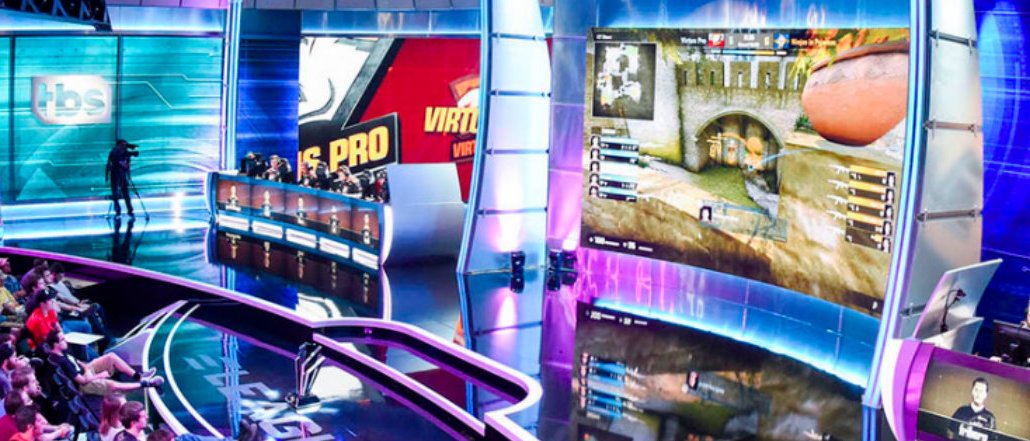Secure your place at the Digiday Publishing Summit in Vail, March 23-25

Last fall, Turner Sports set out on a bold experiment: Intrigued by the growing interest in competitive video gaming, the company launched its own professional eSports league. This “ELeague” would follow 24 teams competing for a prize pool of $1.2 million. These competitions would be broadcast live on Twitch as well as once a week on TBS.
This weekend, ELeague closes out its inaugural season, and by all measures, Turner Sports is already pleased with how the league has performed, according to Craig Barry, evp and chief content officer for Turner Sports. “In our business, engagement is going to be one of the most important metrics going forward,” he said. “And specifically around engagement, we’ve had a very successful first season.”
Through the first nine weeks of ELeague’s inaugural season, viewers combined to watch nearly 800 million minutes — or roughly 13.3 million hours — of ELeague content across Twitch and TBS, the company said. (Weekly content has included three-hour broadcasts on TBS as well as 30 hours of digital content including live competitions and behind-the-scenes coverage of the teams and players.)
While ELeague racked up 18.7 million views on Twitch, the bigger question is how it performed on TV — an area where there is still some doubt on whether eSports can gain traction. And on TV, the numbers are encouraging. According to Nielsen, through the first seven weeks of the season, ELeague broadcasts on TBS averaged 271,000 viewers across live and time-shifted viewing. That pales in comparison to the NFL and NBA, which routinely get millions of viewers for regular-season games, but it’s actually on the higher end for eSports broadcasts. An ESPN2 broadcast of a “Heroes of the Storm” college competition last year drew only 96,000 viewers, demonstrating just how far eSports is coming along.
“It’s an encouraging start,” said Joost van Dreunen, CEO of gaming research firm SuperData. “It represents a consolidation of an audience that’s typically been much more fragmented.”
Maybe more intriguing than the Nielsen rating for Turner Sports and TBS, however, is whether eSports, which traditionally skews younger and male, was able to bring new viewers to the cable network. And here, again, the signs are promising. During the inaugural season, ELeague brought 3.4 million new viewers to TBS — defined here as people who specifically tuned into ELeague broadcasts after not having spent any time on TBS over the previous month — according to Turner Sports. What’s more, viewership among men 18 to 34 was up 70 percent when compared to programming TBS used to air in ELeague’s Friday night timeslot.
“We’re seeing hardcore fans coming to TBS because they want to support an eSports broadcast on TV,” said Barry.
Of course, while TV remains an important part of the ELeague distribution puzzle, Barry painted a more agnostic picture of how Turner Sports wants to deliver ELeague content. For instance, in addition to Twitch and TBS, the ELeague semi-finals and championships this weekend will broadcast live on Twitter.
“ELeague has been one of the more visible efforts and they have done pretty well,” said van Dreunen. “The question is, of course, whether eSports can now grow into something that can rival poker.”
Looking ahead, Turner Sports remains committed to building up ELeague. A second season of ELeague will begin in the fall. It also has a partnership with gaming platform FaceIt to launch a new tournament for Blizzard’s “Overwatch” game. The tournament will span North America and Europe, with the finals airing in Turner Studios’ ELeague arena in Atlanta. All of this will be supported by a team of 150 people across production, talent, creative, sales, marketing and other departments. (Week to week, ELeague has a support team of about 75 people.)
“We’re all in,” said Barry. “This is a marathon for us, not a sprint.”
More in Media

The case for and against publisher content marketplaces
The debate isn’t whether publishers want marketplaces. It’s whether the economics support them.

Urban Outfitters shifts its influencer strategy from reach to participation
Me@UO is Urban Outfitters’ new creator program leverage micro-creators with smaller, engaged communities that are passionate about the brand.

Media Briefing: Without transparency, publishers can’t tell if Google’s Preferred Sources feature benefits them
Six months in, Google’s Preferred Sources promises loyalty-driven visibility, but leaves publishers guessing at the traffic impact.





